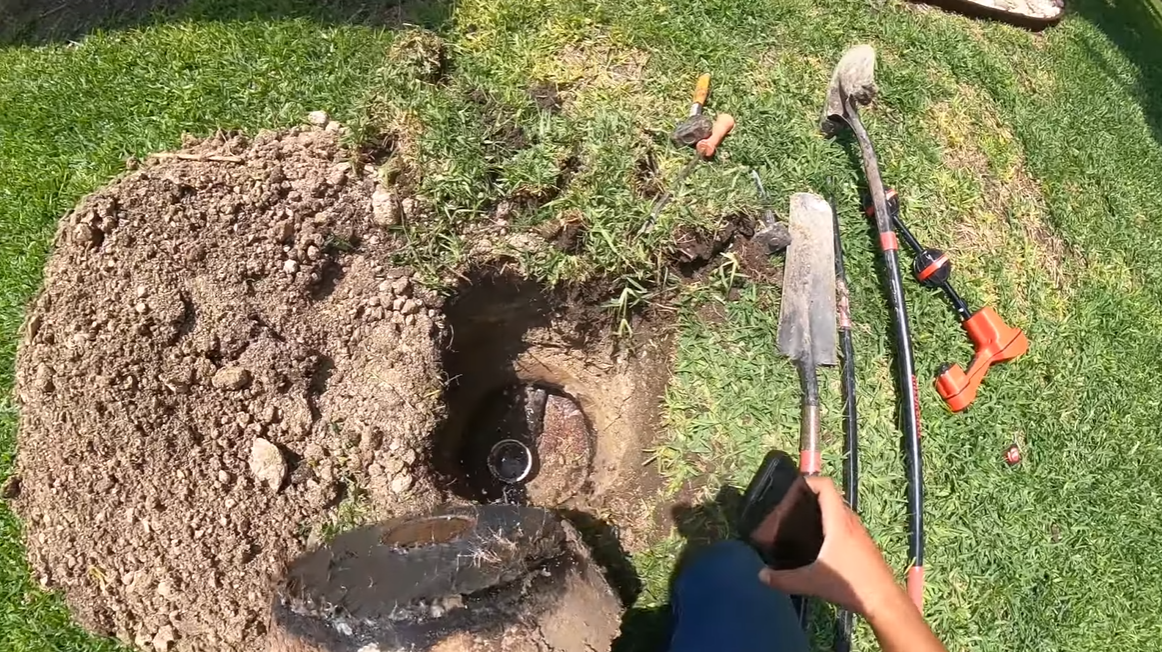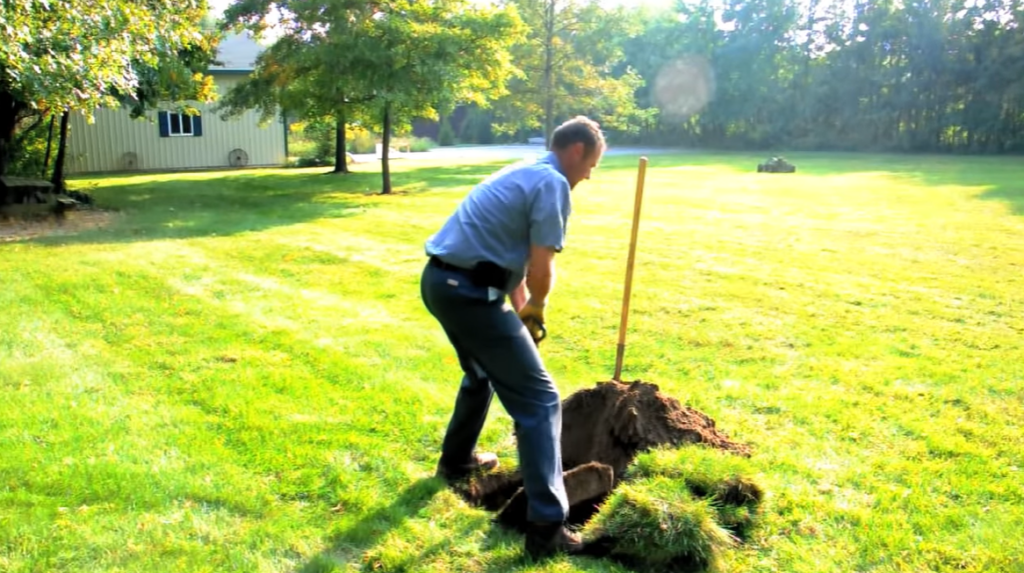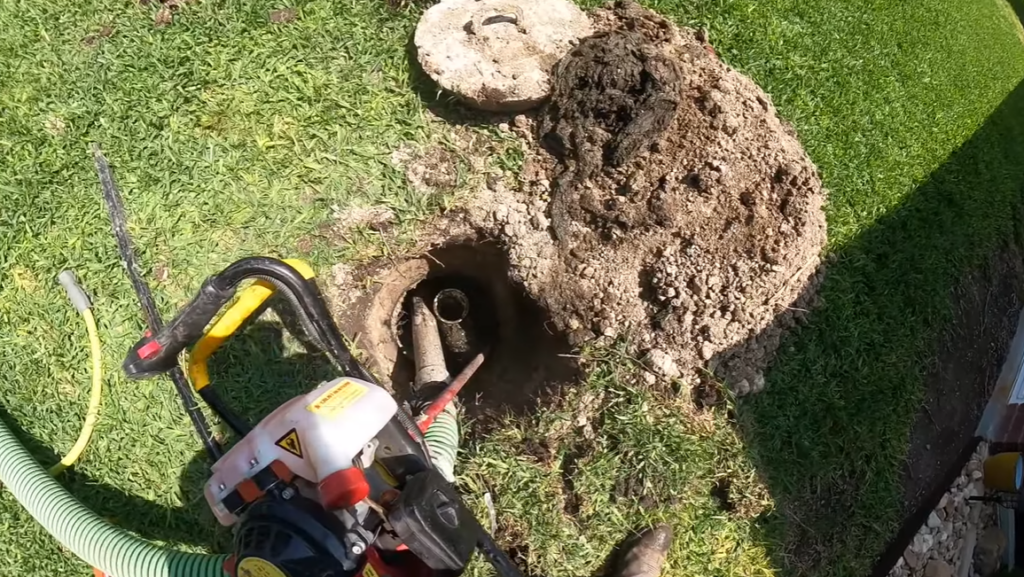If you have a septic system at home, you know the bad feeling when it’s time to clean the septic tank. You might be outside enjoying the morning and suddenly smell something bad.
At first, it starts small but eventually gets stronger, which means your septic tank needs to be cleaned.
I recently had to deal with a smelly problem caused by a septic tank that hadn’t been taken care of. This made me start learning how much cleaning a septic tank costs.
So, if you’re wondering, “How much does septic tank cleaning cost?” I’m here to guide you about the cost of caring for this important but often forgotten part of your property.
How Much Does Cleaning A Septic Tank Cost?
The price of cleaning a septic tank mainly relies on its size. You might need to pay roughly $175 to $300 if you have a smaller tank.

An average-sized tank could mean expenses ranging from about $225 to $600. But if your tank is on the larger side, the cost might be around $400 to $700 for the pumping job.
George Hull, the respected owner of Septic Tank Cleaning Langley BC, a known septic service in Vancouver, stresses that knowing the size of your tank is super important in figuring out the cost.
Most homes have tanks that can hold 1,000 to 1,500 gallons, but smaller houses might have 750-gallon tanks, and bigger homes might use 1,750-gallon tanks.
Each size has its price, so knowing your tank’s size helps you get a precise cost estimate that suits your budget.
Other Cost Considerations For Septic Tank Cleaning
1. Frequency of Use & Cleaning
Septic tank cleaning frequency depends on how much the home is used. Seasonal vacation homes require less frequent cleaning due to sporadic use.

The Environmental Protection Agency (EPA) suggests every three to five years as a safe and effective cleaning period.
Factors such as the number of occupants play a role; a tank serving one person could suffice with cleaning every five years, while one serving 4-5 people might need attention every two years.
2. Cleaning Process & Maintenance
The cleaning procedure involves locating and accessing both compartments of the septic tank.
Regular maintenance helps prevent the accumulation of debris, which may lead to the need for hydrojetting—an average cost of $200 to $400—to dislodge accumulated materials.
Meanwhile, consistent maintenance is important, with expenses ranging from around $200 to $800. This encompasses treatments and comprehensive inspections
3. Location Of Your House
Your property’s geographic location influences costs. Septic tank pumping prices vary by region and even within the same area.

Local economic conditions, service provider competition, and transportation expenses contribute to these pricing differences.
4. Clog Removal
Addressing clogs within the septic system, which can lead to disruptive backups, typically involves costs ranging from around $150 to $450.
5. Septic Tank Repairs
Inspecting the drain lines that connect the home, septic tank, and leach field can help identify issues like damage or clogs.
This inspection usually costs around $100 and $4,000, and it’s essential in maintaining the septic system’s functionality.
How Can You Tell If Your Septic Tank Is Full?
- Sewage Odors: Unpleasant sewage smells in your yard, or home can arise from drainage or toilet issues related to your septic tank. These odors can indicate ventilation blockages or other problems.
- Trouble Flushing and Backups: Difficulty flushing toilets or consistent backups could signal a septic tank nearing full capacity.
- Lush Lawn Growth: Unexpectedly vibrant grass around your septic tank might signal the need for pumping. Healthier grass indicates potential leakage or overflow from your septic system.
- Gurgling Sounds and Slow Drains: Gurgling noises and slow drainage point to air pockets, hindering proper flow within pipes. While this can be due to factors like clogs, it’s often linked to a full septic tank that warrants attention.
- Pooling Water: Standing water near your septic tank location could denote overflow. Distinguishing it from rainwater is the presence of a distinct odor accompanying wastewater.
How Frequently Must Septic Tanks Be Emptied?
For most regular home septic tanks, it’s a good idea to pump them out every three to five years.

But your system needs a yearly check-up if it has special parts like electric switches or pumps. Following these schedules helps your septic system work well for a long time.
How Will You Know If It’s Time To Pump Your Septic Tank?
A clear sign that it’s time for septic tank pumping is when your home’s drains start to drain slowly.
This slowdown is often the first indication of a clog in the sewer line or a tank nearing full capacity.
Staying alert to this symptom can help you catch potential issues early and ensure the proper functioning of your septic system.
FAQs
How long does a septic tank usually last?
A well-installed and properly maintained septic tank typically last 20 to 30 years.
What makes a septic tank go bad?
The primary reasons for septic system malfunctions are often inappropriate design or inadequate maintenance.
Proper installation and regular upkeep are crucial to prevent issues and maintain the effectiveness of the septic tank.
Can you fill a septic tank with too much water?
No, overloading the septic tank with excessive water can disrupt its biological processes. The average daily water usage for a US citizen is around 70 gallons.
So, you must be mindful of water consumption to maintain the septic tank’s proper function.
Final Words
Ultimately, septic tank cleaning costs vary based on the size of your tank. From what I’ve researched, if you’ve got a smaller tank, expect to pay around $175 to $300.
Average-sized tanks fall between $225 and $600, while larger tanks could cost about $400 to $700. Also, remember how often you clean your tank matters, too.
For regular household tanks, a good rule is every three to five years. An annual check is wise if your system has special parts, like electric switches or pumps.
So, while dollars are part of the equation, keeping things running smoothly and avoiding troubles down the line is just as crucial.

